
A Foreign Language: Part Three By Catherine Lacey
The third installment of a short story by Catherine Lacey.
Spring 2025 Issue
The first installment of a short story by Catherine Lacey.
None of them were locals. Their common language was that of their adopted country, the second or third tongue for each of the three—a husband, a wife, and Nile.
Though the wife had known Nile, and her husband had also once known Nile, all three met for the first time during a winter’s early sunset, a meeting perhaps even caused by that sunset, wild amber streaks of sunlight broken and bent by the emptied rain clouds that hung over the city. Nile would later remember the light itself as the beginning of everything, that year that seemed to turn something in him or return something to him he’d long ago misplaced. Odd how accidental it all was, how weather patterns could begin or put an end to seemingly anything in this life.
Though they were running late to a matinee, the couple took a slight detour through the western edge of the park so that they might marvel at the light’s intensity, and as they were coming around the curve of that massive fountain with the strange centaur in the middle, there was Nile. He saw Ismail first, then Tomasa.
There was a second of hesitation until recognition and memory came to each of them, out of sync. Tomasa was the first to start to introduce Nile to her husband, reaching out to touch Nile’s arm (in that camelhair coat she remembered) but almost simultaneously Ismail began to introduce Nile to his wife, each of them using terms still new to them—the word for “husband,” the word for “wife.” Tomasa kept forgetting how to correctly pronounce the word for “marriage,” and always used the verb “to wed” in a way that was technically correct but sounded unnatural. It had been almost three years since her brief weeks with Nile and more than five years since he’d seen Ismail.
Oh, so you already know each—and you—so you’ve met before—we have—and I didn’t know you’d gotten married, that you even—it’s been an age—what a small world—oh—you look the same, the exact same—and you—I had no idea you were still around—yes, but where have you been—here, only here, and you, have you done some traveling, or—no, I’ve been here, we’ve been here, how strange not to have seen you—I thought you’d moved away—I thought the same thing—
Tomasa and Ismail and Nile had been speaking this language for long enough that they no longer thought of it as a neutral ground between themselves and others, though it is true that it was the only language these three shared in common, completely, and it is true that this language was native for none of them, yet if we imagine a language to be a neutral ground, then where is the war?
But we have to be going—don’t let me keep you—oh but it’s so nice to see you—and you—only three minutes until curtain, but let’s meet again—yes, same phone number?—same for me, yes, do you have it?—I remember it, yes—we’ll talk soon then, make a plan—so nice to see you—so nice to see you both.
Neither Ismail nor Tomasa spoke as they walked away, a bright agitation between them, their mouths smiling without their awareness, their hands growing faintly damp against the other. So you know him too, one of them said, and the other replied, Yes, pertly, without breaking stride. They made it to the theater just in time, were ushered to their row, clammy in their coats, shrugging them off and folding them across their laps just before the curtain rose. She rested a hand on his thigh and he laid his left hand over it.
The play took place in a lifeboat after a large passenger ship had just sunk. Four children, six women, and one elderly man sat huddled together and barely spoke for all four acts. The set design was elaborate: a weathered wooden boat was suspended in a tank of black blue water that rose and fell and occasionally splashed out onto the feet of those on the front row. The sound of the water was the play’s only score. The actors were different each night, all of them volunteers who’d been trained into their parts for several hours before the curtain rose. The script called for an enormous amount of silence and those in the boat tended to grow ill as the acts went on. There was an intermission, but the actors were not allowed to disembark, and had to stay there rocking in the darkness while the audience went to the lobby for something intoxicating or sweet. Intermission passed silently save for the sound of the cash register chiming or coughs or sneezes or the clink of ice cubes against glass. Distantly, everyone could still hear the stage sea churning. The audience tended to rush back to their seats with chocolate still dissolving in their mouths, whiskey still wet on lips.
By the time Tomasa and Ismail went to the play, it had been running for two sold-out weeks and had just been extended for another three. There had been some concern, at first, that the roles were too demanding for untrained actors and children, especially the children, but everyone who’d been on stage had reported a deep satisfaction; they all agreed that even though the performance was exhausting and almost terrifying to sustain, it had been worth it to be witnessed so carefully by such a rapt audience.
I feel I’ve been truly comprehended for the first time in my life, one woman told the local newspaper, entirely comprehended by the world at large. Such reports inspired hundreds to fill then overfill the waiting list to be onstage. The play’s extension was due in part to that high demand.
The husband and wife, like almost everyone else in the audience, left the theater in a state of unease and awe. They clutched each other, each of them steadying the other, as they walked silently through the dark streets. Though they had an impulse to discuss the play, as they often did with works of art, the play had left them with nothing to say. The play had said everything that needed to be said about it.
Ismail had made a dinner reservation at a café where no one ever really needed reservations; there was always room. Still—he liked to reserve a specific table because it so delighted the café’s owner, an older man with an accent so peculiar that few could understand him. The menu was always the same: a slaw, some sort of root-vegetable stew, a glass of plain wine poured from an unlabeled glass carafe, then an orb of frozen pistachio milk at the end. The café had been there for nearly four decades and nothing had ever changed.
After dinner, and after taking the long way home, and after arriving home, and after feeding the cat, and after they’d washed their faces and brushed their teeth and gotten into bed, Ismail then remembered they hadn’t said anything else about Nile, hadn’t even explained to each other how they knew him.
Nile, Ismail said, and Tomasa replied, Oh right, right, how strange.
But strange wasn’t the right word and she knew it.
Not strange, she corrected.
No, it was . . . something—but he didn’t know what it was.
But then what was it? she asked, but neither of them suggested an alternate word. They fell asleep with the question left open.
It makes no difference what country this all took place in, nor does it matter which year it was in the twentieth century. It’s also unimportant which countries—different countries—each of them had expatriated. All three held unglamorous jobs that were neither a delight nor a nuisance, but their work is also of no concern. Also insignificant are the languages they learned before they refracted themselves into this common one.
Elsewhere in their lives these origins and professions and first languages had discrete consequences—at borders, in streets, in split seconds—but when it came to what passed between the three and their six eyes, six lungs, twelve limbs, and three minds, none of it, for once, amounted to much of anything.
In the morning Ismail and Tomasa both remembered the unanswered questions about Nile, but neither asked the other about him. They’d overslept. They dressed quickly and ate toast while standing and rushed out into the street and kissed goodbye on the corner where they so often kissed goodbye.
It’s not that they forgot about Nile that week—they did not—but their inability to clearly describe the sensation that had arisen between the three there in the sunset, with the statue of the centaur looking on, had made it difficult to know how to ask the other about Nile, and in that time five days passed and it was time for the party at Rin’s house.
Rin was a Nepalese photographer in his eighties whom Tomasa and Ismail had met in August in the street. His annual Christmas party was locally legendary, a tradition Rin had kept going for many years, though he was not Christian. He’d begun the party for Carlos, a Catholic from New Orleans who’d lived with Rin for years. After Carlos had died, more than two decades ago now, Rin kept the party going in memoriam. For a few years it was a somewhat muted affair, as Carlos had died tragically and quite young, but after some time the Carlos Party became just a party again, partly because this is the nature of grief and partly because fewer and fewer guests had ever known him. Lately some of Rin’s guests assumed “Carlos” was a misspelling of “Carols,” as in “Christmas Carols,” though Christmas carols were rarely sung at the Carlos Party unless the right people got drunk enough.
Tomasa and Ismail arrived with a bottle of wine and a small potted plant. The crowd in Rin’s high-ceilinged apartment were mostly people he had met in the streets, strangers he’d approached to photograph over the last fifty years, a wide range of ages and personalities and professions, but a vast majority were foreign to this country. Rin’s guests also included a few of the famous people he’d been hired to take portraits of over the years—an opera singer, a politician, a stage actress whom everyone adored—as well as several of his wealthy patrons. The unlikely mix of cultures and class gave the party an undeniable momentum. Something always happened there.
Tomasa and Ismail had met Rin outside a museum during an idle and uncertain moment in an unbearably hot afternoon. Their first impulse had been to decline his request to take their portrait, as they’d just been having a terse and rare disagreement, and they were hungry and a little overheated and a little dazed from having just spent too long in the museum, but there was something rare in Rin’s face, a clear and pointed sense of curiosity, so they nodded that it was fine.
Rin began his work immediately, before the couple had a moment to prepare themselves or anticipate the shutter’s blink. He took five shots, no more, and once he was done they spoke for a few minutes, then Tomasa invited him for supper later that week, at their apartment, and though the couple were not in the habit of so impulsively inviting a stranger to their home, it felt natural to do so.
Rin was quite accustomed to such invitations. For the first years he’d lived in this city, newly defected from Nepal, many locals had been openly hostile toward him. Naturally he gravitated to those who also did not belong. Nearly every time he took a photograph of someone he didn’t know, he soon found out—even when they seemed to be local to this place—that his subject had, yet again, a distant origin or a complicated sense of home, or was an outsider in some other way.
The photo of Ismail and Tomasa was one of Rin’s favorites of his more recent works; it was strangely intense for a street portrait. The rest of them tended toward whimsy, a word Rin didn’t care for, but to which he had surrendered himself. At dinner, Rin gifted Ismail and Tomasa his best print of the five, still cold from the darkroom.
Tomasa’s left hand was reaching out toward Ismail, who stood with one leg in front of the other, looking straight into the lens as if about to ask a difficult question. A fine mist of sweat was visible on both of their foreheads. Neither were smiling.
The photograph had moved Ismail to tears, a common reaction for him but a genuine one. They had so few photographs of themselves together. The oldest was from a visit to a circus in the countryside shortly after they’d met; a traveling photographer had taken it in his tent. The newest was the government-issued portrait immediately after their courthouse wedding. But Rin’s photograph had captured such a minor and unembellished moment—hunger, fatigue, and indecision—and yet some kind of tenderness was still present between the two. Tomasa often stopped in the hallway just to look at it, as if calibrating herself.
The Carlos Party that year took place on a mild December night, but no one’s enjoyment of the weather was yet undercut by the anxiety about what the warm air might ultimately mean. Rin had left all the windows open and put all the ashtrays on the terrace in the hope that no one would smoke too much inside this year.
The apartment was not yet at full capacity when Tomasa and Ismail arrived, and Nile was already there, too, in another room lost in a long conversation with an ornithologist, but they would not find him in the crowd for at least another hour. The guests were all lively, dressed in bright colors and silk and feathers. Some of them had fled wars while others had simply drifted to this city, with family money or with no money but plenty of ambition, or no ambition but simply an intention to feel finally at home someplace they technically did not belong.
Rin’s anxious, elderly dog steadily paced the room, weaving between ankles. It wasn’t the party itself that roused his anxiety but rather the strange fact that he was a dog who had gained some splinter of consciousness about the state of his life, the state of being a dog. His only true joy came when Rin would lie flat on his back on the Persian rug and let the dog crawl onto his stomach to rest. His name was Po-Boy II, named so in honor of the dog that had survived Carlos, Po-Boy, named after the only thing Carlos unequivocally missed about New Orleans. Precisely five years after Carlos had died, Po-Boy had died, and Rin, unable to bear it, had almost immediately gotten Po-Boy II, who had grown a bit plump and lumpy in his old age, despite his constant nervous shuffling around the apartment. His body was shaped like a bear’s body but he was much smaller than a bear, more like a large loaf of bread. He paced around the Carlos Party, sighing his little dog sighs while the partygoers laughed as they looked down at him, amused, smiling. Their laughing, too, pained the dog. When he looked up at the humans with his all-too-human eyes they only laughed more. This was the inescapable state of Po-Boy II’s life. Everyone kept saying he was “so cute.”
As anticipated, a scandal began to unfold at the party, gossip told in whispers over the flutes of fizzy wine. It was this: a psychoanalyst had unexpectedly crossed paths here with a patient, a young woman with wild ginger hair and black combat boots, and instead of politely avoiding each other they had fallen into each other’s arms on the chaise longue while the psychoanalyst’s husband, seemingly oblivious, smoked a cigar on the terrace. Theories arose that perhaps the cigar signified that the husband (one of Rin’s wealthy collectors) did in fact know that his wife (so regal in her green caftan) was involved with this young woman. Perhaps the cigar meant he had entirely avoided the castration this indiscretion implied. The cigar said: I am in on it, above it, accepting of it all.
There was a rumor that the redhead was also a lover of the husband’s and there was a rumor that she was actually an employee of the husband’s vast real estate business and there was a rumor that in fact the redhead was not a patient of the psychoanalyst at all, but this rumor was entirely false and generated by the collective desire, at the party, for the psychoanalyst to not be in the wrong, as she was so well-liked and well-respected and had published several books that many at the party had consulted as if they were absolutely true and moral; no one wanted to disrupt their admiration.
Still—the specter of deception hung over the party, lighting it warmly. The patient buried her face in her analyst’s neck and whispered things that no one was able to overhear; the analyst’s face melted in pleasure.
For some reason, the sight of the couple on the chaise longue reminded Tomasa immediately of a page she’d recently come across in an old diary. She’d written it at the end of a long and bitter relationship with a man who sometimes beat her but more often doted on her with an addictive intensity; Tomasa had clung to this man, for many years, with the grip of a terrified child. The line from her diary: “I’m tired, I don’t care, I hate you, I love you, I do care, don’t touch me, don’t look at me, come here, go away.”
Tomasa had been engaged to marry him, ten years her senior and widely respected in her small town. When she had finally confessed to her brother, trembling, that she was thinking of leaving him because of the violence, her brother responded that she was a fool, that this marriage was the only hope their small family had. Tomasa left by train three days later, transferred to a larger train, then a larger one, then boarded a boat. She told no one where she was going. Years later now, she sometimes worried it was all an overreaction. She missed her brother, despite herself. Now he was the only one there. Their parents were dead and her younger sister had fled the moment she had been old enough to do so.
A drunken Christmas carol took over the room, a secular one to which everyone knew most of the words. Every December it played on the radio and the radio played in the shops and at the market and over time these words had inserted themselves, subliminally though perhaps incompletely, in so many minds. Music could be invasive like that, Ismail thought, as he sang some of the lines in half-disbelief, half-delight.
Between singing, everyone kept stealing glances at the wife and her lover on the chaise longue, and at the husband, still patiently smoking his cigar, now alone, on the part of the terrace that was just visible from the other side of the apartment.
Ismail’s mother had taught him, strictly though hypocritically, that gossip was for lowlifes, that it was cruel and crude and always to be avoided; at the same time, he had, as a boy, often overheard his mother gossiping over black tea with her friends, or sharing secrets with the fruit vendor at the market when he occasionally accompanied her on shopping trips. So as Ismail walked along the outer edge of the living room, seeming to put all his attention on Rin’s many portraits, he listened in on the conversations about the analyst and the many salacious associations it brought up.
Here was a photograph of an elderly woman shouting in joy, and Ismail examined it while eavesdropping on a woman saying that every time she read in the papers about that distant but horribly troubling war, she immediately wanted to go have anonymous sex and often did. Here was a photograph of a young man playing a saxophone in the street. Every time? another woman asked the other woman. But Ismail couldn’t hear her reply clearly—something about pleasure and destruction and the end of the world. Here was a photograph of a small child and a large dog. I usually don’t want to be human, one of the women said, I almost always want to be an animal, mating.
Ismail had lost track of Tomasa in the crowd. He looked over his shoulder for her, then turned back to the photos to see Rin’s portrait of Nile. Nile was carrying a stack of books and had a longer beard, just the way Ismail remembered him from years prior. He stared into Nile’s two-dimensional eyes for a while, then turned to look for Tomasa again, but instead he saw Nile, such strange timing, walking toward him from the other room. Behind him he saw Tomasa as well, her eyes glinting at him through the crowd. The sight of the two at once seemed more like a staged photograph than life itself—this young man he’d known so briefly but intensely, and Tomasa, the woman with whom he’d been able, now, to make a livable life.
But before Tomasa or Nile could reach him, the husband with the cigar entered the room, and as he saw his wife, his voice burst through the singing—
What are you doing?
Everyone was still and silent as the wife raised her face from a kiss—
I thought you’d left.
The husband put his cigar out on someone’s slice of cake. The room was silent, then the husband fled, though not quickly, and everyone could hear each step he took toward the door.
No one moved for a moment and a sense of guilt spread like cool water poured into a hot bath. A few turned to look at the wife and her lover, her patient. Then Rin raised his voice, asked for the carol to begin again, and it did, though unsteadily.
An hour later, after cups of mulled wine and a conversation between Ismail and Nile and Tomasa that avoided revealing the stories of how they’d met him and when and under what circumstances, the three all left the party at once. In the street they could still hear the voices and half-sung carols and laughter pouring down on them from above. The couple said their goodbyes to Nile warmly, clutching waists and necks with fondness and joviality, then Nile got on his bike to head home, but almost immediately the bike’s wheel got stuck in a streetcar rail and threw Nile to the pavement. Ismail and Tomasa rushed to him like parents, and though Nile was laughing his knee was bloodied and his pant leg was ripped, and when he stood he couldn’t totally stand. Ismail held him at the shoulder and Tomasa at the hip as they walked him the two blocks to their apartment.
They spoke steadily all the way there, laughing, their faces wine warm, and when it was time to ascend the staircase to their apartment Ismail and Tomasa practically carried Nile, though he was taller than the two. Ismail put a washcloth-wrapped ice pack on Nile’s leg and Tomasa give him a tincture for the pain, dripping it from the bottle directly into Nile’s mouth. How right it was for something as sudden and unplanned as an injury to force them together. Hours later, they were all asleep.
Text © Catherine Lacey

Catherine Lacey is the author of The Möbius Book (2025), and of five other books including Biography of X (2023). She has earned a Guggenheim Fellowship, a Whiting Award, the New York Public Library’s Young Lions Fiction Award, the Brooklyn Library Prize, and a Lambda Literary Award, and her work has been translated into a dozen languages.

The third installment of a short story by Catherine Lacey.

We present the final installment of a four-part short story by Arinze Ifeakandu.

We present the third installment of a four-part short story by Arinze Ifeakandu.
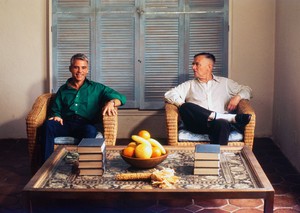
Katherine Bucknell, previously the editor of a four-volume edition of Christopher Isherwood’s diaries, has now published Christopher Isherwood Inside Out, an intimate and rigorous biography of the celebrated writer and gay cultural icon. Here she meets with Josh Zajdman to discuss the challenges and revelations of the book.

Sydney Stutterheim has published Artist, Audience, Accomplice: Ethics and Authorship in Art of the 1970s and 1980s (Duke University Press, 2024), a survey of performance art and related practices that involve, in various manners, the figure of the accomplice. To celebrate the publication, the Quarterly is publishing an excerpt that examines Chris Burden’s Deadman (1972).
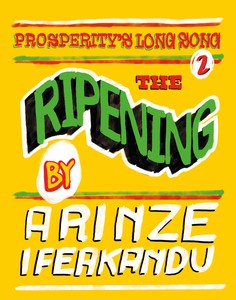
We present the second installment of a four-part short story by Arinze Ifeakandu.
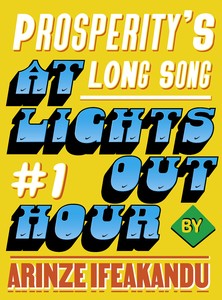
We present the first installment of a four-part short story by Arinze Ifeakandu. Set at the Marian Boys’ Boarding School in Nigeria, “Prosperity’s Long Song” explores the country’s political upheavals through the lens of ancient mythologies and the mystical power of poetry.
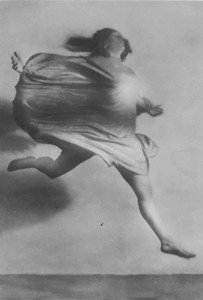
Salomé Gómez-Upegui interviews author Jennifer Higgie about her latest book The Other Side: A Journey into Women, Art and the Spirit World (2023).

The final installment of a short story by Percival Everett.
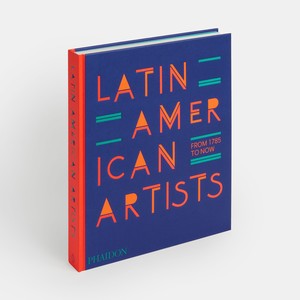
To celebrate the publication of Phaidon’s new, expansive survey, we share an excerpt from Raphael Fonseca’s introduction and a few of the more than three hundred artists featured.

The third installment of a short story by Percival Everett.
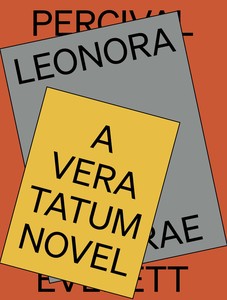
The second installment of a short story by Percival Everett.